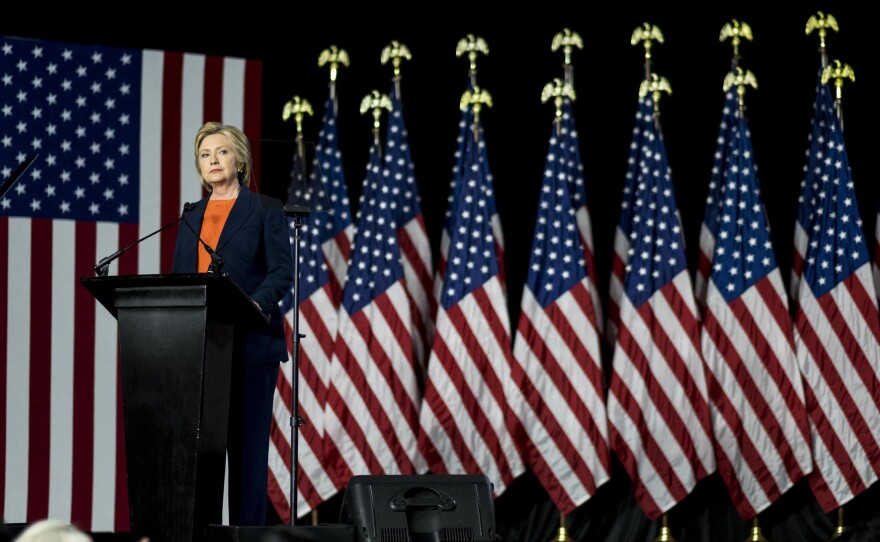Hillary Clinton delivered a remarkable speech Thursday, one that was billed as a foreign-policy address, but was principally about laying out the case for why Republican Donald Trump is disqualified to be commander in chief.
Here are three questions answered:
1. What did she do with this speech?
Clinton accomplished something — this was her authentic self. What's more, she laid out her values, walked into a barroom and started a fight. It was as tough and brutal a takedown as anything I've ever seen her do. It showed she won't hesitate to punch and counter punch and lay out the case against Trump.
It was intensely political, but not not ideological. These were not mere differences she laid out, she painted Trump as somebody who is dangerous. And she sought to present herself as utterly and completely presidential. It also served as a strong contrast with Trump's free-flowing press conference about veterans at which he ranted about the press.
It was the first big, engaged battle of the general election. Everything up to now has just been skirmishes. She presented Trump not just as dangerous and unsteady, but also dismissed the things he wants to do in foreign policy as antithetical to U.S. values. She said when the U.S. doesn't lead, bad guys rush in to fill the vacuum. It's the complete opposite of his protectionist, somewhat isolationist rhetoric.
Clinton laid out a strong case for an internationalist, engaged foreign policy — why that's important and why that makes the United States exceptional.
2. Who was the speech aimed at?
There were two audiences — nervous Democrats worried that she's not gaining traction (and they were thrilled with the speech), as well as moderate Republicans, foreign-policy hawks and NeverTrumpers. To appeal to them, she planted herself firmly in the bipartisan center of the foreign-policy debate.
You could almost imagine she had a picture of John McCain in her mind when she said Trump would kill families of terrorists, as compared to how the Navy Seals conducted the raid that killed Osama bin Laden — moving the women and children to safety.
"That's what honor looks like," she said.
3. What impact could it have?
Clinton is still locked in a primary, and foreign policy is not a big issue on the Democratic side (though Sanders has continued to hit her on her vote for the Iraq war and the decision to go into Libya). But Clinton demonstrated how she would take on Trump. Democrats have been waiting for someone to unload the full file of oppo research on Trump. She did. Sanders hasn't.
Clinton showed she could stand up to Trump.
She showed off her policy expertise on the firmest ground she can stand on --foreign policy is the issue where she beats Trump consistently in the polls. Contrast her content and demeanor with his braggadocio, like when he says he knows more than generals, for example.
From a policy standpoint, she planted herself in the center of the foreign-policy spectrum, someone who was trying to form a doctrine that could win bipartisan consensus. She provided a home for all of those foreign-policy hawks, moderate Republicans, foreign-policy establishment types, who don't have anywhere to go. She said, I am with you when it comes to a 75-year-old foreign-policy consensus in the United States.
At the end of the day, Clinton's speech calmed Democrats and gave an invitation for Republicans worried about Trump. The Clinton camp also appears to have settled on its argument against Trump — temperament.
There's certainly a case to be made against Clinton on foreign policy. It can cut both ways for her — she's been criticized for not having great accomplishments as secretary of state. Republicans have hit her on her record on Libya, the Iran nuclear deal and more.
But for Clinton, this was the first time she showed she intends to live out the old axiom that this is how you deal with a bully — you punch him in the nose.
Copyright 2016 NPR. To see more, visit http://www.npr.org/.






